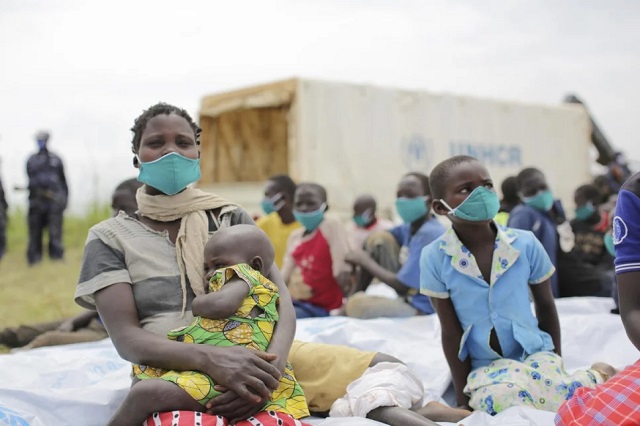
Arua, Uganda | THE INDEPENDENT | Arua city leaders are proposing a review of the policy that governs urban refugee management.
The current policy does not recognize refugees in other cities and urban centers apart from Kampala Capital City. This the leaders say has increased pressure on resources especially social services like water, health, and education in the city.
According to the leaders, the presence of urban refugees has increased competition between the refugees and the local residents on the limited available resources, which if not addressed could trigger conflict.
Kalsum Abdu Fadimula, the Secretary for Social Services in Arua city says most schools in the city are overwhelmed with a high number of both refugees and locals which exerts immense pressure on the inadequate infrastructure.
According to records at Arua Regional Referral hospital, at least 5 percent of the daily Out Patients Department (OPD) attendance at the facility are refugees.
Caesar Draecabo, the President of the Arua City Development Forum notes that there is an urgent need for government to reconsider changing the existing policy framework for urban refugees such that refugees in other secondary cities are recognized.
Gabriel Batali, the program coordinator of the South Sudanese Refugees Association in Arua City admits that there are a number of refugees living in the city with the majority women and children. According to Batali, most of the refugees settled in the urban centers due to the presence of better social amenities.
But Jena Toma, the Deputy Refugee Desk Officer at the Office of the Prime Minister in Arua says they are aware of the presence of urban refugees in the city. She however urged the city leaders to seek partnership opportunities with the implementing partners as they continue advocating for the policy review which may take a long process.
In West Nile, Arua City, Koboko Municipality, and Yumbe town are among the urban centers that have the biggest number of urban refugees in the sub-region.
A recent survey carried out by Cities Alliance and AVSI Foundation indicates that Arua City Central Division has 10,000 urban refugees.
*****
URN
 The Independent Uganda: You get the Truth we Pay the Price
The Independent Uganda: You get the Truth we Pay the Price






Network for Active Citizens- NAC through the Open Civic Space for Youth project has been working with the South Sudan Refugee Association and 30 other organizations focusing on supporting youth-led organizations both refugee-led and nationals to advocate for more inclusive policies, increase budget allocation for the refugee hosting communities because of the socio-economic benefits they also bring in the community and local government revenue.
reviewing policies that would consider urban refugees as part of the national census because they equally access local government resources in urban communities.
Thank you Independent magazine for bringing this article well.
Great work team
It’s a good initiative
It is true that urban refugees are not being recognised as refugees by the authorities. They always say the refugees they know are in the camps.
This is a good move, and it will improve the well-being of the refugees in the urban centres.